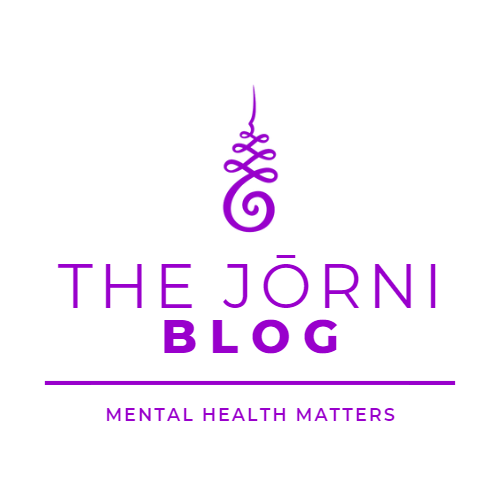Rapid Transformational Therapy
Rapid Transformational Therapy (RTT) is a novel therapeutic approach that has recently gained in popularity. RTT was created by Marisa Peer, a world-renowned therapist and author. It integrates a variety of approaches and modalities to help with overcoming emotional and psychological issues. The approach is founded on the premise that many of our problems arise from subconscious memories. By addressing these core causes, we can effect long-term change and healing.
My guest on the podcast this week was Stacey Uhrig. Stacey is a Certified Trauma Recovery Coach who educates folks on what childhood and developmental trauma is and how it shows up in adulthood by keeping you stuck.
She helps people identify patterns and core beliefs developed in childhood and how to FLIP from them as adults leading to more peace, joy, and connection.
As a practitioner who utilizes modalities like Hypnosis and Rapid Transformational Therapy®, she helps her clients gain clarity. Her coaching practice can empower you to look at your life challenges through a different lens, Flip your Mindset, and find greater purpose and more importantly, PEACE in life.
“We may define therapy as a search for value.”
- Abraham Maslow
In this post, we’ll explore more about RTT, how it works, how it works, as well as its safety and effectiveness. Whether you’re struggling with stress, anxiety, sadness, or low self-esteem, Rapid Transformational Therapy could be an option to explore. Let’s get started.
What Is Rapid Transformational Therapy?
Rapid Transformational Therapy (RTT) is a therapeutic approach that combines hypnosis, Cognitive-Behavioral Therapy (CBT), and neuro-linguistic programming (NLP) to help with emotional and psychological issues. Marisa Peer, herself a therapist and author, created RTT and has been practicing for over 30 years. She has helped hundreds of individuals achieve dramatic breakthroughs with RTT.
The core tenet of RTT is that many of our problems, including anxiety, low mood, addiction, and low self-esteem, arise from subconsciously stored negative beliefs and experiences. RTT works directly with the subconscious mind to reframe and reprogram it with positive beliefs. Rapid Transformational Therapy enables you to break free from limiting beliefs and negative behavioral patterns, resulting in long-term transformation.

RTT is frequently touted as a quick and successful therapy method, since it usually only takes a few sessions to achieve meaningful change. Unlike standard therapy, which can take months or even years, RTT seeks to provide effects quickly. RTT is a client-centered approach, so the therapist collaborates with the client to identify and address their unique needs and goals.
RTT may be a suitable choice for you to consider if you are dealing with a specific issue or simply looking for personal growth. Overcoming limiting beliefs and negative patterns can be helpful for creating a healthier and happier life.
Who Is Marisa Peer?
Marisa Peer, is the creator of Rapid Transformational Therapy (RTT). Peer has worked with a diverse spectrum of people, including celebrities, athletes, and top achievers, and has earned a reputation for producing revolutionary outcomes. Marisa's journey into therapy began as a child when she experienced hypnotherapy’s transformational influence on her brother’s bedwetting problem. This event piqued her interest in therapy, and she studied hypnosis and psychotherapy.
Peer has developed her own distinct approach to therapy throughout the years, using many techniques and modalities such as hypnosis, CBT, and NLP. Her approach is founded on the concept that many of our problems arise from negative beliefs and experiences stored in the subconscious mind. We can achieve lasting transformation by accessing and retraining the subconscious mind.

Peer’s work in RTT has received international notice and acclaim. She has been published in publications such as Forbes, The Telegraph, and The Sunday Times. She has also written several books, including “I Am Enough” and “You Can Be Thin,” which have been translated into various languages.
Peer is a highly sought-after therapist and lecturer, and she is constantly developing and refining her therapeutic method. Her purpose is to assist people in overcoming emotional and psychological obstacles and living their best lives, and RTT is just one of the many ways you can achieve that.
Benefits of Rapid Transformational Therapy
Quick Results: As the name implies, RTT is a quick method of therapy that can provide significant effects in a matter of sessions. Unlike traditional therapy, which can take months or even years, RTT attempts to provide long-term transformation in a short amount of time.
RTT is a client-centered approach, which implies that the therapist collaborates with the client to identify and address the client’s individual needs and goals. This method ensures that therapy is unique to you and that you are an active participant in your own healing.
RTT focuses on working with the subconscious mind, which is where many of our thoughts and actions are stored. Rapid Transformational Therapy can help you break away from negative patterns of behavior and accomplish long-term transformation by accessing and retraining the subconscious mind.

RTT integrates multiple techniques and modalities, including hypnosis, CBT, and NLP, to create a powerful therapeutic approach. Rapid Transformational Therapy may address a wide range of issues, from anxiety and depression to addictions and phobias.
People are empowered by RTT to take control of their own recovery process and change their life. RTT can help individuals develop better self-awareness, self-confidence, and self-esteem by providing them with the tools and techniques they need to solve their obstacles.
How Does Rapid Transformational Therapy Work?
RTT works by accessing and reprogramming the subconscious mind with positive beliefs and new perspectives. The procedure includes several techniques, including hypnosis, CBT, and NLP. Here are some steps in the RTT process.
Intake and Assessment: The therapist begins by gathering information about the client’s difficulties and goals during an intake and assessment session. The therapist will also go over the RTT process with the client and address questions they may have.
Regression: The therapist then guides the client into a deep level of relaxation, allowing them to access their subconscious mind. The therapist may employ a variety of techniques, including visualization and guided imagery, to assist the client in accessing prior experiences. They will also identify any negative beliefs or patterns of behavior that may contribute to their current problems.

Rewiring: After identifying any negative thoughts and behaviors, the therapist will work with the client to reframe and reprogram them with positive beliefs and new perspectives. To assist the client in making these positive changes, the therapist may employ a variety of strategies. These can include positive affirmations, cognitive restructuring, and visualization.
Reinforcement: The therapist will then use strategies, such as repetition and visualization, to reinforce the client’s positive changes and beliefs. This helps to integrate the new thoughts and actions into the client’s subconscious mind, increasing the likelihood that they will stick.
Generally, the therapist will plan a follow-up session with the client to assess progress and promote positive changes. Also, the therapist may equip the client with extra tools and skills to assist them in continuing their healing journey on their own.
Rapid Transformational Therapy Uses
Rapid Transformational Therapy can help with a variety of emotional and psychological difficulties, including anxiety, sadness, addictions, weight loss, and phobias. RTT’s emphasis on accessing the subconscious mind and prior experiences enables it to address the underlying causes of these disorders and change negative beliefs and behavioral patterns.
Anxiety is a frequent problem that many individuals suffer from. And it can take many forms, including panic attacks, social anxiety, and generalized anxiety disorder. You can use RTT to discover the underlying reasons for your anxiety and to change negative beliefs and behavioral patterns that contribute to your experience.
Depression is a crippling disorder that affects a person’s emotions, thoughts, and behaviors. RTT can assist you in overcoming depression by accessing and reprogramming negative thoughts and emotions, as well as giving tools and procedures for symptom management.

Many people struggle with weight loss, and RTT can be a useful method for addressing the core causes of weight gain. RTT can help with achieving long-term weight loss by addressing emotional eating, negative self-talk, and other variables that contribute to weight gain.
Addictions can take many forms, ranging from substance abuse to compulsive activities like gambling or shopping. You can try RTT to discover the underlying causes of your addictive behaviors and to change negative attitudes and behavioral patterns that contribute to your addiction.
Phobias are acute and unreasonable anxieties that can have a substantial impact on a person’s daily life. You can use RTT to understand the underlying reasons for your phobia and reprogram negative thoughts and emotions that contribute to your fear.
Rapid Transformational Therapy Safety and Effectiveness
Rapid Transformational Therapy (RTT) is considered a generally safe and effective method of treatment. It combines hypnosis, CBT, and NLP to provide a powerful approach to recovery. RTT is carried out in a safe and supportive setting and is adapted to your personal requirements and goals. After undergoing RTT, many people have experienced remarkable results and long-term changes.
While RTT is considered safe, some people may have side effects or discomfort during or after the therapy session. These can include dizziness or lightheadedness; emotional distress; nausea or headaches; or false memories. It’s important to note that these adverse effects are generally mild and pass quickly, most people have no side effects at all after RTT.

Rapid Transformational Therapy research is still in its early stages, but preliminary findings show it is a viable and effective approach to therapy. While additional research is needed, existing studies show RTT can be beneficial in treating a variety of emotional and psychological disorders.
In 2017, the International Journal of Clinical and Experimental Hypnosis published a study that looked at the effectiveness of RTT in treating anxiety and depression. Researchers discovered that after just one RTT session, individuals reported significant reductions in anxiety and depression symptoms, which were sustained at a one-month follow-up.
Another study published in the European Journal of Clinical Hypnosis in 2016 looked at the efficacy of RTT in the treatment of smoking addiction. The study discovered that 63% of participants had quit smoking and reported significant improvements in their overall quality of life following three RTT sessions.
The Takeaway
Rapid Transformational Therapy is a gentle and effective approach to therapy. It incorporates techniques such as hypnosis, CBT, and NLP, to create a potent therapeutic approach. RTT’s emphasis on accessing the subconscious mind and prior experiences enables it to treat the underlying causes of many emotional and psychological difficulties. Its client-centered approach ensures that therapy is personalized to the individual’s specific needs and goals.
Whether you are experiencing emotional or psychological difficulties, Rapid Transformational Therapy can be a transformational experience. While it is natural to be wary of starting a new form of therapy, RTT is regarded as a safe and non-invasive treatment option. The adverse effects are often mild and transient, and many people have experienced significant results and long-term transformations after undergoing RTT.

Ultimately, trying RTT can be a powerful and transformative experience. Especially if you are looking to overcome emotional and psychological issues and support your emotional and psychological well-being.
There are many resources and information available if you want to learn more about Rapid Transformational Therapy.
Marisa Peer’s website provides information about RTT, including the techniques used and the therapy’s benefits. There are also many books available, including “I Am Enough: Mark Your Mirror And Transform Your Life” and “Ultimate Confidence: The Keys to Feeling outstanding About Yourself Every Day”. There are also various podcasts that explore RTT, including Marisa Peer’s “Mindvalley” podcast and “The RTT Experience” podcast.
If you are considering RTT, choose a trained and certified RTT practitioner and make sure you feel comfortable working with them. RTT could help you find the breakthrough you have been looking for!

